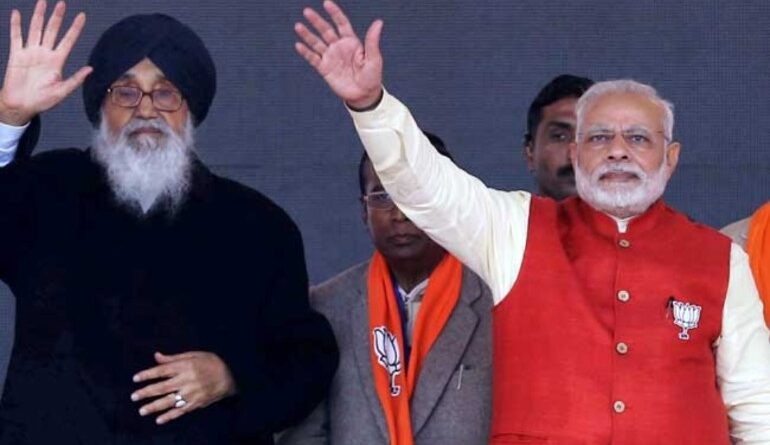Why did Akali Dal refuse to contest Lok Sabha elections with BJP? How a 24-year friendship broke, Explained

Chandigarh: The alliance talks between the BJP and the Akali Dal for the Lok Sabha elections in 2024 have broken down. The two parties will not contest the elections together.
The Akali Dal was a part of the NDA for a long time. In the year 2019-2020, the Akali Dal separated itself from the NDA due to the three agricultural laws brought by the central government. The BJP has announced that it will contest all 13 seats in Punjab.
Regarding the lack of an electoral alliance with the BJP, the Akali Dal has said that the alliance is not possible due to differences in the ideologies of the two parties.
At the same time, the party has also indicated that it will go alone in the 2027 assembly elections. Sources believe that the Akali Dal wants to consolidate its vote bank by contesting the 2024 Lok Sabha elections independently.
Apart from disagreements on political, religious, and socio-cultural issues, the Akali leadership has also expressed apprehensions about the BJP’s image as “destroying regional forces.”
Many Akali leaders believe that the BJP aims to leverage their party and its voter base to achieve its target of 400 seats for the party-led National Democratic Alliance. The Akalis also fear that if the Lok Sabha elections are successful for the BJP, they may demand more seats for the 2027 election.
Akali Dal leader Sukhbir Singh Badal has said that the numbers game has never mattered for his party. For nearly 103 years, the Akali Dal has worked for the progress and development of Punjab, prioritizing ideology above all. He said that no national party works in the interest of Punjab, and their party will continue to voice concerns on farmers’ issues.
A resolution moved by the Akali Dal last week highlighted that the alliance between the Akali Dal and the BJP had continued for almost 24 years since 1996. In 1996, the Akali Dal had announced unconditional support to the BJP in the name of Sikh-Hindu unity.
However, during the farmers’ agitation in 2020, the relationship between the two parties deteriorated, leading to the breakdown of the alliance.
The Akali Dal’s decision to go it alone means there will be a four-cornered contest in the 13 seats in Punjab, with the Congress and the ruling Aam Aadmi Party also in the fray. There is a friendly contest between the Congress and the AAP on all seats by mutual consent.
Meanwhile, the BJP has announced its candidates for all seats, and the Akali Dal will also contest on all seats. In such a scenario, a quadrangular contest is expected on all seats in Punjab.
In the 2019 elections, the Congress, led by then former chief minister (and ex-Congressman) Amarinder Singh, won eight of the state’s 13 seats. The BJP and the Akali Dal each won two seats, while the Aam Aadmi Party secured one seat.
During this election, the Akali Dal garnered more than 27 percent of the votes, while the BJP received less than 10 percent, indicating a significant difference in vote percentages between the two parties.
In the last assembly elections, both parties entered the field separately for the first time after five elections. Previously, the Akali Dal had contested 94 seats, and the BJP had contested 23 seats.
In the last election, the Akali Dal formed an alliance with the BSP but faced a crushing defeat, winning only three seats. Similarly, the BJP also won only two seats in that election.
Punjab will go to the polls in a single phase on April 19, with results expected to be declared on June 4.

